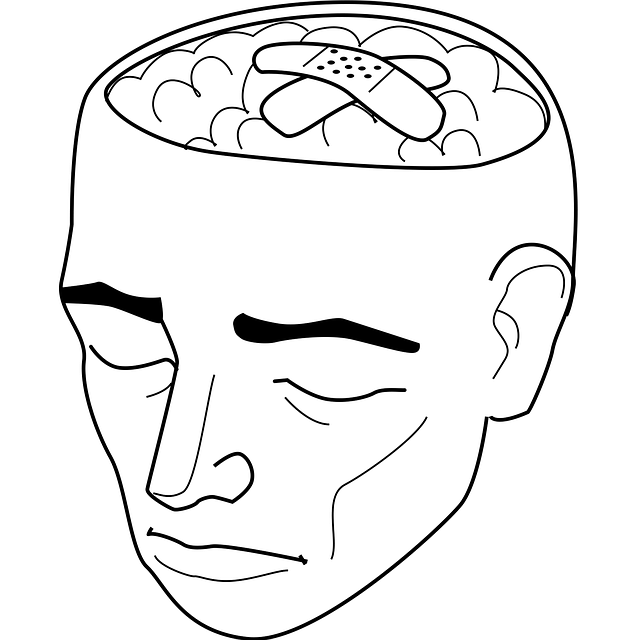Longmont EMDR Therapy workshops prioritize stress management by educating participants about its impact on health and empowering them with practical tools for emotional well-being. These interactive sessions, blending theory and skill development, foster self-care practices and adaptive coping strategies tailored to individual needs. Post-workshop support through check-ins, accessible resources, and online communities encourages lasting behavioral changes, promoting sustained mental wellness.
Stress management workshops are a powerful tool for personal growth and well-being. In today’s fast-paced world, understanding and effectively managing stress is crucial. This article explores how to organize workshops that empower individuals to navigate life’s challenges. We delve into structuring engaging sessions, incorporating evidence-based techniques like Longmont EMDR Therapy, and implementing post-workshop strategies to promote lasting change and resilience. By the end, you’ll be equipped to create transformative experiences for your participants.
- Understanding Stress and Its Impact: A Foundation for Workshop Design
- Structuring Effective Longmont EMDR Therapy Workshops
- Promoting Lasting Change: Post-Workshop Follow-Up Strategies
Understanding Stress and Its Impact: A Foundation for Workshop Design

Stress is an inevitable part of life, but understanding its nature and impact is key to effective workshop design. In today’s fast-paced world, individuals often face numerous stressors that can lead to both physical and mental health issues if left unaddressed. Recognizing these challenges, our workshops aim to educate and empower participants with practical tools for managing stress. By delving into the complexities of stress, we lay a solid foundation for teaching techniques such as Longmont EMDR Therapy, which has proven effective in facilitating emotional healing processes.
This comprehensive approach involves not just learning about self-care practices but also internalizing them as sustainable lifestyle choices. Our community outreach program implementation focuses on making these workshops accessible to all, fostering an environment where individuals can openly discuss stress and its various manifestations. Through interactive sessions, participants will gain insights into their own stress triggers and learn adaptive coping strategies that cater to their unique needs, ultimately enhancing their overall well-being.
Structuring Effective Longmont EMDR Therapy Workshops

Organizing effective Longmont EMDR Therapy workshops requires a structured approach to ensure maximum impact on participants’ mental wellness. These sessions should be meticulously designed, incorporating interactive activities, group discussions, and practical exercises that facilitate emotional regulation. A well-rounded workshop curriculum includes an introduction to EMDR therapy principles, exploring its application in various scenarios, and providing hands-on experience for both practitioners and attendees. By balancing theoretical knowledge with practical skills, participants gain a comprehensive understanding of how to incorporate EMDR into their Mental Wellness Coaching Programs Development.
The process should also emphasize the importance of creating a safe and supportive environment where individuals feel comfortable sharing their experiences. Incorporating Mental Health Education Programs Design elements, such as case studies and role-playing scenarios, allows attendees to apply EMDR techniques while receiving constructive feedback. This practical approach fosters emotional healing and empowers participants with valuable tools for personal growth. Effective workshops further enhance Emotional Regulation by teaching participants how to manage and release traumatic memories, ultimately improving their overall mental health.
Promoting Lasting Change: Post-Workshop Follow-Up Strategies

After facilitating stress management workshops centered around Longmont EMDR Therapy and Mind Over Matter principles, following up with participants is crucial to promote lasting change. This can be achieved through a combination of strategies that reinforce what was learned during the workshop and provide additional tools for emotional regulation. One effective approach is implementing regular check-ins via email or phone calls where participants can share their progress, challenges, or any insights gained since the workshop. These conversations allow facilitators to offer tailored guidance and support, ensuring individuals stay on track with their personal growth journeys.
Moreover, providing accessible resources such as recorded sessions, handouts, and online communities can create a supportive network that encourages continued learning and application of communication strategies. By fostering open dialogue and offering readily available tools for emotional regulation, participants are empowered to integrate these practices into their daily lives, leading to sustained mental well-being long after the workshop concludes.
Stress management workshops, as demonstrated through structured Longmont EMDR Therapy sessions and strategic post-workshop follow-ups, offer powerful tools for personal growth. By understanding stress and its impact, these workshops foster lasting change, empowering individuals to navigate life’s challenges with resilience. Incorporating evidence-based techniques ensures participants not only learn but also apply effective stress management strategies in their daily lives.












